The BMP inhibitor Coco reactivates breast cancer cells at lung metastatic sites
- PMID: 22901808
- PMCID: PMC3711709
- DOI: 10.1016/j.cell.2012.06.035
The BMP inhibitor Coco reactivates breast cancer cells at lung metastatic sites
Erratum in
- Cell. 2012 Dec 7;151(6):1386-8
Abstract
The mechanistic underpinnings of metastatic dormancy and reactivation are poorly understood. A gain-of-function cDNA screen reveals that Coco, a secreted antagonist of TGF-β ligands, induces dormant breast cancer cells to undergo reactivation in the lung. Mechanistic studies indicate that Coco exerts this effect by blocking lung-derived BMP ligands. Whereas Coco enhances the manifestation of traits associated with cancer stem cells, BMP signaling suppresses it. Coco induces a discrete gene expression signature, which is strongly associated with metastatic relapse to the lung, but not to the bone or brain in patients. Experiments in mouse models suggest that these latter organs contain niches devoid of bioactive BMP. These findings reveal that metastasis-initiating cells need to overcome organ-specific antimetastatic signals in order to undergo reactivation.
Copyright © 2012 Elsevier Inc. All rights reserved.
Figures
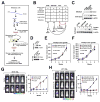
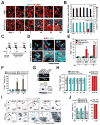


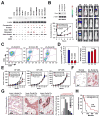
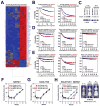
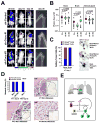
Comment in
-
Metastasis: Recharging with COCO.Nat Rev Cancer. 2012 Oct;12(10):655. doi: 10.1038/nrc3361. Epub 2012 Sep 21. Nat Rev Cancer. 2012. PMID: 22996601 No abstract available.
References
-
- Aslakson CJ, Miller FR. Selective events in the metastatic process defined by analysis of the sequential dissemination of subpopulations of a mouse mammary tumor. Cancer Res. 1992;52:1399–1405. - PubMed
-
- Bell E, Munoz-Sanjuan I, Altmann CR, Vonica A, Brivanlou AH. Cell fate specification and competence by Coco, a maternal BMP, TGFβ and Wnt inhibitor. Development. 2003;130:1381–1389. - PubMed
Publication types
MeSH terms
Substances
Associated data
- Actions
Grants and funding
LinkOut - more resources
Full Text Sources
Other Literature Sources
Medical
Molecular Biology Databases

